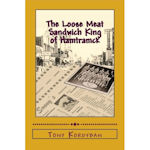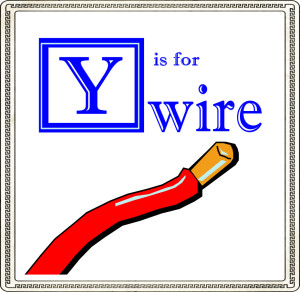
“Mmmmmm. apostrophe.”
At Ford we had a saying whenever we heard complaints that one of our cars wasn’t working as well as it should, such as the gear shift suddenly popping by itself out of Park into Reverse and running over somebody in the driveway. “It’s a defect all right,” one of the old-timer engineers would say, “A loose nut behind the wheel.” Implying that the only thing wrong with the car was the incompetent driver who hadn’t put the gear shift all the way into Park in the first place.
When a system works most of the time, it makes sense to blame the occasional mistake on the stupid user. But when that system fails almost all the time, the system is stupid, not the user.
Take English, for example. One of its most common mistakes is using its instead of it’s, or the other way around. Nobody can remember when to use the apostrophe, because the rule is confusing.
Here is the formal rule:
It’s is the contraction of it is, similar to Frankie is going home can be shortened to Frankie’s going home..
Its is the possessive form of the pronoun it, NOT similar to They are going to Frankie’s home to see how Frankie’s doing.
Usage: It’s time to put everything in its place.
(My dad would recommend avoiding this problem by saying “Now’s the time to put everything in their place.” Which is a different stupid English problem to be covered in another post.)
The problem is that everybody remembers this rule: to make a word possessive, you add ‘s.
The big dog stole the little dog’s bone.
And the apostrophe distinguishes this from the plural form (two or more):
My dogs are a-barkin’ now!
So naturally the casual writers of English are confused by the possessive form of it. They are vaguely aware of some stupid exception to the rule here, but can never remember which way it goes, because the apostrophe could be correct either way.
Since it seems nobody can remember this rule, and it is abused so frequently, my position is that the general population isn’t stupid, the Rule is stupid. Let’s just drop the apostrophe and get on with it. Nobody is confused if we write:
Its too bad its rules are stupid, that is, you know, English.
Come to think of it, we can just get rid of the apostrophe altogether, and I don’t think anybody would miss if very much.
“Oh, but what about all the contractions!” you lament.
The apostrophe in don’t and isn’t and ain’t indicates that one or more letters have been removed from do not and is not and am not to form these informal contractions. That happened centuries ago. I think it’s time to get over it and admit those dropped letters are never coming back. Don’t is not really shorthand for do not. It is its own word nowadays. It doesn’t need an apostrophe to remind us of its origins anymore.
“Surely possessive nouns still need them!” you cry out.
Somehow in spoken English people can hear the difference between plural and possessive nouns, based on context. You don’t need to click you tongue to indicate an apostrophe when you pronounce a sentence like:
My cat’s fleas are driving her bonkers.
You know cat’s is possessive and fleas and bonkers are plural. The apostrophe adds nothing. (Well, OK, if you have multiple cats, the location of the apostrophe can add this smidgeon of meaning, as in
Your cats’ fleas have fled.)
The apostrophe is not completely useless. It is just mostly useless, and because it is mostly used incorrectly, I’d say, on balance, we’d be better off without it.
Especially in the case of shop signs, when the sign creators are trying to be cute by connecting words with a contracted form of the word AND. Here the rule is pretty simple: when you omit a letter, stick in an apostrophe. Yet, nobody can get it right.

If I work the rule backwards on this professionally designed sign, I should be able to take out the apostrophe and add one or more letter to form the original word. What is this sign trying to say? Stop In Shop? Stop On Shop? Stop Upon Shop?
OK. They made a mistake. But everybody knows what the sign means. My conclusion has to be that the apostrophe before the N, and the lack of apostrophe after the N, add nothing to the meaning of the sign.
Let’s get rid of the apostrophe. We won’t miss it much, and it will immediately add five points to all of our future SAT English scores. Or is that score’s?










